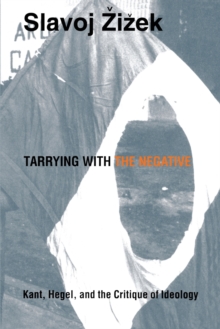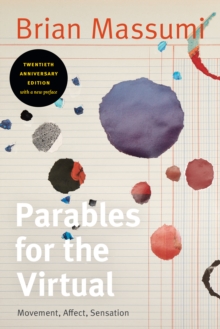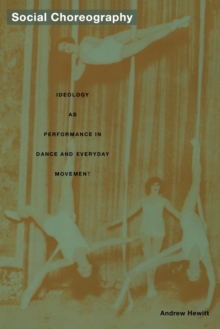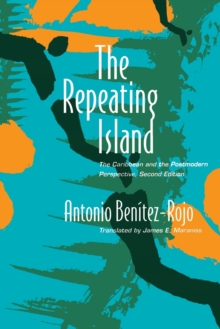
Post-Fascist Fantasies : Psychoanalysis, History, and the Literature of East Germany Paperback / softback
by Julia Hell
Part of the Post-Contemporary Interventions series
Paperback / softback
Description
Post-Fascist Fantasies examines the cultural function of the novels of communist authors in East Germany from a psychoanalytic angle.
Various critics have argued that these socialist realist fictions were monolithic attempts to translate Communist dogma into the realm of aesthetics.
Julia Hell argues to the contrary that they were in fact complex fictions sharing the theme of antifascism, the founding discourse of the German Democratic Republic.
Employing an approach informed by Slavoj Zizek's work on the Communist's sublime body and by British psychoanalytic feminism's concern with feminine subjectivity, Hell first examines the antifascist works by exiled authors and authors tied to the resistance movement.
She then strives to understand the role of Christa Wolf, the GDR's most prominent author, in the GDR's effort to reconstruct symbolic power after the Nazi period.
By focusing on the unconscious fantasies about post-fascist body and post-fascist voice that suffuse the texts of Wolf and others, Hell radically reconceptualizes the notion of the author's subjective authenticity.
Since this notion occupies a key position in previous literary-historical accounts of East German culture, Hell's psychoanalytic approach problematizes the established literary model of an "authentic feminine voice" that gradually liberates itself from the GDR's dominant ideological narrative.
Far from operating solely on a narrowly political level, the novels of Wolf and others were intricate family sagas portraying psychic structures linked in complex ways to the GDR's social dynamics.
Hell traces this link through East German literatrure's dominant narrative, a paternal narrative organized around the figure of the Communist father as antifascist hero.
Information
-
Available to Order - This title is available to order, with delivery expected within 2 weeks
- Format:Paperback / softback
- Pages:384 pages
- Publisher:Duke University Press
- Publication Date:17/11/1997
- Category:
- ISBN:9780822319634
Other Formats
- Hardback from £103.00
Information
-
Available to Order - This title is available to order, with delivery expected within 2 weeks
- Format:Paperback / softback
- Pages:384 pages
- Publisher:Duke University Press
- Publication Date:17/11/1997
- Category:
- ISBN:9780822319634










